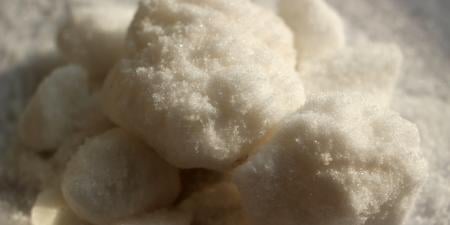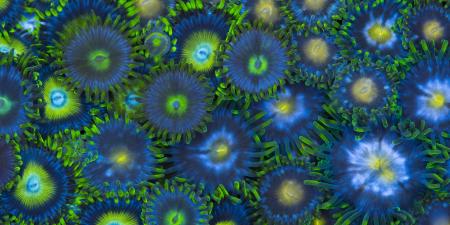Case
Ted is a conscientious medical student. Throughout the first two years of medical school, he has performed well academically. In addition, Ted has served as an officer on the student council and as a department-appointed physiology tutor. He attributes his balanced academic and extracurricular success to his time management skills.
Like most medical students, Ted was excited to move on from the basic science curriculum to become a member of the clinical team on the wards. He was particularly enthusiastic because his first rotation was in general surgery, the field that he was ultimately hoping to pursue as a career. Because the chief of the service began morning rounds at 6 a.m., Ted arrived each morning at 5 a.m. to pre-round on his patients. During this hour, he meticulously collected the most recent vital signs and overnight trends on both intensive-care-unit patients and those on the medical floors. He spoke with the nursing staff about overnight events and visited each patient to perform a focused physical exam.
During the course of the first two weeks, Ted realized that his efforts were not recognized on morning rounds. The chief relied on the sign-out provided to the interns from the night team for patient data and performed his own exam as the team went on rounds in the unit. As a result, Ted concluded that pre-rounding was not the most effective use of his time. In order to augment his education as a student, Ted decided to study later at night and wake up an hour later in the morning, arriving at the hospital immediately before rounds. Of course, he remained committed to seeing his patients at some point later in the day.
Noticing that Ted arrived in the call room immediately prior to rounds, the chief inquired why he was not pre-rounding on his patients. Ted politely explained that since student input was not considered on morning rounds, he found it more useful to arrive later in the morning so that he had more time to study independently in the evenings. He assured the chief that he would fulfill his responsibilities throughout the later morning and afternoon hours.
Commentary
One of the more perplexing tasks for medical students is determining their role on the medical team and how it relates to their educational experience. More time seems to be spent on noneducational drudgery than on stimulating educational experience. Students often feel frustrated, useless, abused or "scutted out" and think they are not getting educational value for their tuition dollar.
Medicine is a career unlike any other. One day you truly will hold a person's life in your hands, and what you do will have profound effects on that person's life—as well as on that of his family and friends. This fact among others makes medicine a profession and not a job. From the day you set foot in medical school, learning is accomplished not just to pass a test but because what you learn may allow you to save someone's life one day.
So how does this relate to Ted's self-assessment that pre-rounding is fruitless and a waste of his time? What Ted failed to realize was that what he does on the wards is not done merely for recognition by his chief resident, among others, but is part of his educational process. Meeting with his patients each morning, examining them, getting all relevant data and understanding what happened overnight will make Ted a better doctor. If Ted sees this role as just getting the numbers for his residents, then he has missed the point.
The body that certifies residency programs, the Accreditation Council for Graduate Medical Education (ACGME) has delineated six core competencies that are imperative for every physician to master [1]. Among these, some, such as medical knowledge and patient care, are obvious and easily structured into medical curricula. Others, such as communication skills and professionalism, are honed through intimate and sustained contact with the patients for whom you care. These competencies are integral to pre-rounding. Ted can and should use his pre-rounding to learn how to recognize trends and events that happened over the night and how they should be treated. He can also use the time to deepen the bond that naturally develops between caregivers and their patients by listening firsthand to their worries and problems.
The last two ACGME competencies are less tangible. Practice-based improvement refers to the lifelong learning essential for all physicians to ensure that their practice is current and clinically sound. It is a practice of learning that is highly contextual and self-reflective. For Ted, pre-rounding, in addition to his other duties, is a valuable tool to contextualize the medical data and teamwork of which he is now part. The more involved he is in his patients' care, the more he will learn and understand.
The sixth ACGME competency—systems-based practice—is another critical area in which physicians develop an understanding of the different types of medical practice and delivery systems. On a macro level, this means understanding the health care system (e.g., insurance, type of medical facility, how the hospital runs). Another part of this concept is learning the mechanisms of team dynamics and partnering with all members of the health care team. Clinical rotations emphasize and depend on an immersive learning environment, and the responsibilities of each team member can be baffling to a medical student. A real part of Ted's current education is learning how to be part of a team and how that team works to provide optimal patient care. Ted's chief resident may not be an ideal role model or educator and seems not to fully know how to run an efficient team. Having a poor team leader does not in any way condone Ted's actions if he is being less conscientious and thorough in his own practice. Remaining true to the highest standards and not allowing yourself to fall to the lowest common denominator will help you to be the best physician you can be.
Becoming an active participant in your own education is an important step toward becoming a doctor. Structured education, such as lectures and assigned readings, does occur on the wards, but increasingly you are responsible for your own mastery of material. Tasks like pre-rounding offer students the opportunity to hone their communication skills, to understand medical processes and their treatment, and to appreciate the nuances of being part of a health care team. Though frustrating and at times demeaning, pre-rounding is an excellent learning moment for the enthusiastic and caring medical student, and it is an ideal time to establish rapport with patients and to understand their care. So often what feels like a lemon to an overburdened student is the perfect ingredient for thirst-quenching lemonade.
References
-
Accreditation Council for Graduate Medical Education. Core Competencies. Available at: Accessed March 14, 2007



